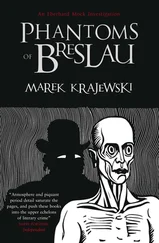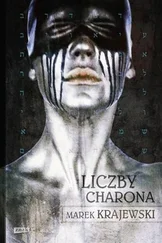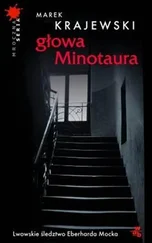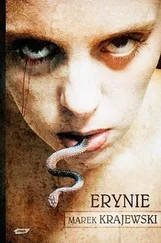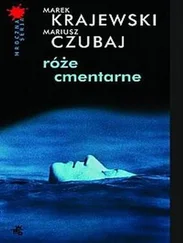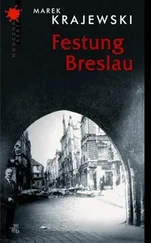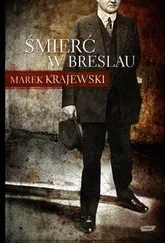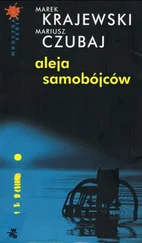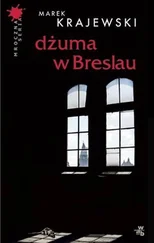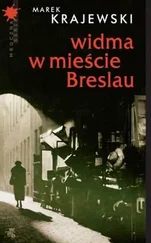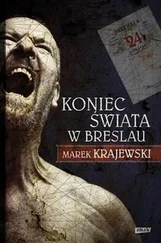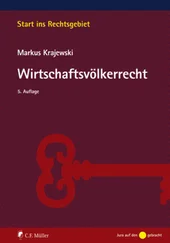Marek Krajewski - Death in Breslau
Здесь есть возможность читать онлайн «Marek Krajewski - Death in Breslau» весь текст электронной книги совершенно бесплатно (целиком полную версию без сокращений). В некоторых случаях можно слушать аудио, скачать через торрент в формате fb2 и присутствует краткое содержание. Жанр: Полицейский детектив, на английском языке. Описание произведения, (предисловие) а так же отзывы посетителей доступны на портале библиотеки ЛибКат.
- Название:Death in Breslau
- Автор:
- Жанр:
- Год:неизвестен
- ISBN:нет данных
- Рейтинг книги:3 / 5. Голосов: 1
-
Избранное:Добавить в избранное
- Отзывы:
-
Ваша оценка:
- 60
- 1
- 2
- 3
- 4
- 5
Death in Breslau: краткое содержание, описание и аннотация
Предлагаем к чтению аннотацию, описание, краткое содержание или предисловие (зависит от того, что написал сам автор книги «Death in Breslau»). Если вы не нашли необходимую информацию о книге — напишите в комментариях, мы постараемся отыскать её.
Death in Breslau — читать онлайн бесплатно полную книгу (весь текст) целиком
Ниже представлен текст книги, разбитый по страницам. Система сохранения места последней прочитанной страницы, позволяет с удобством читать онлайн бесплатно книгу «Death in Breslau», без необходимости каждый раз заново искать на чём Вы остановились. Поставьте закладку, и сможете в любой момент перейти на страницу, на которой закончили чтение.
Интервал:
Закладка:
Nobody achieved that fame, but there was one man who consciously rejected it. This was a policeman from Breslau — Criminal Director Eberhard Mock — who, in the mid-’20s was in charge of so-called Vice Affairs in the Kleinburg district. It was shortly after his extraordinary promotion. All the newspapers wrote about the brilliant career of the forty-one-year-old policeman who, from one day to the next, had become one of the most important people in the city — Deputy to the Chief of the Breslau Police Criminal Department, Muhlhaus. On May 18th, 1925, during a routine check on a brothel on Kastanien-Allee, Mock, shaking with nerves, enlisted a constable from the street and, together, they burst into the room where the duo, Wirth and Zupitza, were mingling with a female trio. Mock, afraid that the arrested men might not obey him, shot them just in case, even before they had managed to clamber out from under the girls. Then, with his constable’s help, he tied them up and, in a hired cart, took them to Karlowitz. There, on the flood banks, Mock presented the two bound and bleeding bandits with his conditions: he would not stand them up in front of a tribunal if they settled in Breslau and obeyed him unconditionally. They accepted the proposition without reservation. Nor were there any reservations as to the whole situation on the part of the constable, Kurt Smolorz. He was quick to pick up Mock’s reasoning, not least since it most intimately concerned his own career. Both bandits found themselves in a certain friendly brothel where, handcuffed to their beds, they were subjected to loving first aid. After a week of convalescence, Mock made his conditions explicit: he demanded the large sum of a thousand dollars for himself and five hundred for Smolorz. He did not trust German money, which was being wasted away at the time by the fatal disease, inflation. In exchange, he proposed to Wirth that he would close his eyes on the extortion racket against smugglers who, shunting their dirty goods to Stettin, paused in Breslau’s river port. It was an argument of a sentimental nature which inclined Wirth to accept these propositions unconditionally. Mock had decided to separate the inseparable companions and assured Wirth that — if the money was not handed over on time — Zupitza would be turned over to the hands of justice. A second important argument was the prospect of a peaceful, settled life instead of the wandering life they had led up until then. Two weeks later, Mock and Smolorz were wealthy men, while Wirth and Zupitza — sprung from the executioner’s axe — entered terra incognita , fallow ground which they swiftly cultivated in their own way.
That evening, they were happily drinking warm vodka in Gustav Thiel’s tavern on Bahnhofstrasse. The tiny man with a foxy face, slashed with scars, and the square, silent Golem accompanying him, made an unusual couple. Some of the customers laughed at them surreptitiously; one of the regulars was completely unabashed and openly expressed his amusement. The fat man with pink, wrinkled skin kept exploding into laughter and pointing his chubby finger in their direction. Since they were not reacting to his taunts, he recognized them as cowards. And there was nothing he liked more than to torment fearful people. He rose and, pushing his feet hard into the damp floorboards, made towards his victims. He stood near their table and laughed hoarsely:
“Well then, my little man … Are you going to have a drink with good old uncle Konrad?”
Wirth did not so much as glance up at him. He calmly drew strange shapes with his finger on the wet oilcloth. Zupitza gazed pensively at the pickled gherkins swimming in a murky solution. At last, Wirth turned his eyes to Konrad. Not of his own free will, certainly: the fat man had squeezed his cheeks and was ramming a bottle of vodka into his mouth.
“Piss off, you fat pig!” Wirth with difficulty suppressed the memories of Copenhagen.
The fat man blinked in disbelief and grabbed Wirth by the lapels of his jacket. Not noticing the giant rise from his seat, he butted his head, but before it reached the would-be victim’s face Zupitza’s open hand materialized and the assailant’s forehead collided with it. That same hand grasped the fat man by the nose and shoved him on to the counter. Wirth, in the meantime, was not idle. He leapt on to the bar, grabbed Konrad by the collar and slammed his head into the countertop wet with beer. Zupitza took advantage of the moment. He spread his arms and suddenly clapped them together. The fat man’s head found itself between two fists; blows from either side crushed his temples, soot poured over his eyes. Zupitza took the inert body under the arms while Wirth made way for him. Those present in the tavern were numb with fear. Nobody would laugh at the singular couple again. They all knew that Konrad Schmidt did not give in to just anyone.
BRESLAU, THAT SAME JULY 15TH, 1934
NINE O’CLOCK IN THE EVENING
Unusual equipment had been arranged in cell no. 2 of the investigative prison in the Police Praesidium: a dentist’s chair, its arms and leg-rests fitted with leather straps and a brass buckle. At that moment, the straps tightly hugged the mighty, stout limbs of the man sitting in it, a man so terrified that he was almost swallowing his gag.
“Did you know, sirs, that what every sadist fears most is another sadist?” Mock calmly finished his cigarette. “Consider, Schmidt, these men,” — he indicated Wirth and Zupitza — “they are the cruellest sadists in all Europe. And do you know what they like most? You won’t find out if you answer my questions nicely.”
Mock signalled to Smolorz to remove the gag from Konrad’s mouth. The prisoner breathed heavily. Anwaldt asked the first question:
“What did you do to Friedlander during the interrogation that made him admit to killing Marietta von der Malten?”
“Nothing, he was simply afraid of us, that’s all. He said he killed her.”
Anwaldt gave the signal to the duo. Wirth yanked Konrad’s jaw down, Zupitza thrust an iron rod into his mouth. He squeezed the upper first tooth with a small pair of pliers and broke it in half. Konrad screamed for almost half a minute. Then Zupitza removed the rod. Anwaldt asked the question again.
“We tied the Jew’s daughter to the couch. Walter said we’d rape her if he didn’t admit to slashing up that one in the train.”
“Which Walter?”
“Piontek.”
“And then he confessed?”
“Yes. Why in the hell is he asking that?” Konrad turned to Mock. “For you, it’s …”
He did not manage to finish. Mock broke in:
“But you screwed that Jewish girl anyway, eh, Schmidt?”
“It goes without saying,” Konrad’s eyes hid in folds of skin.
“And now, tell us, who is this Turk with whom you tortured Anwaldt?”
“That I don’t know. The boss simply told me that with this one here we … both … well …” here he indicated the Assistant with his eyes.
Mock gave Zupitza the signal. The rod found itself in Konrad’s jaws again and Zupitza yanked the pliers down. What remained of the broken tooth crunched in its gum. At the next signal, Zupitza broke off a bit of the second upper first. Konrad choked on blood, wheezed and sobbed. After a minute, they removed the rod from his teeth. Unfortunately, Schmidt could not say anything because his jaw was dislocated. It took Smolorz a long time to put it back in place.
“I am asking you again. Who is that Turk? What is his name and what is he doing at the Gestapo?”
“I don’t know. I swear.”
This time Schmidt pressed his jaws together so tightly as to make it impossible for them to reintroduce the rod. Then Wirth took a hammer and positioned a huge nail on the hand of the bound man. He slammed at the hammer. Konrad screamed. Not for the first time that day, Zupitza demonstrated his reflexes. When the Gestapo-man’s jaws flew open, the rod quickly found itself between them.
Читать дальшеИнтервал:
Закладка:
Похожие книги на «Death in Breslau»
Представляем Вашему вниманию похожие книги на «Death in Breslau» списком для выбора. Мы отобрали схожую по названию и смыслу литературу в надежде предоставить читателям больше вариантов отыскать новые, интересные, ещё непрочитанные произведения.
Обсуждение, отзывы о книге «Death in Breslau» и просто собственные мнения читателей. Оставьте ваши комментарии, напишите, что Вы думаете о произведении, его смысле или главных героях. Укажите что конкретно понравилось, а что нет, и почему Вы так считаете.

